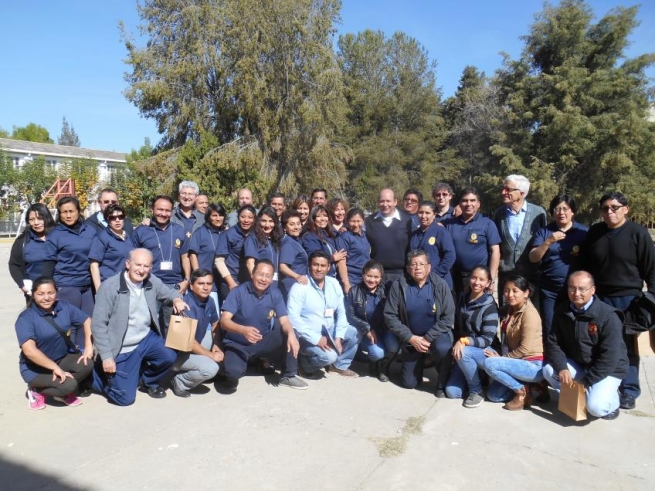BOLIVIA: Salesian University Provides Advanced Education for Disadvantaged Youth

(MissionNewswire) Salesian missionaries recently held their first management evaluation meeting at the Salesian University. The meeting brought together 62 participants from the Main Salesian House in La Paz and from other Salesian programs located in Colcapirhua, Camiri, Sana Carlos, Yacuibi and Monteagudo. The meeting took place in June and included Provincial Father Javier Ortiz Rodríguez and the Provincial Council who analyzed the objectives proposed and the results achieved at this early stage.
Salesian missionaries working with the Salesian University take the words of Pope Francis to heart when he speaks of “peripheries of the world.” Not only do the Salesian missionaries in Bolivia have various centers and programs in the suburbs, the Salesian University has now come to the periphery in search of young people with specific needs.
“We are one of the country’s first universities to have opted for the periphery, for areas far from the center, with headquarters and branch offices that distinguish us as Salesians,” says Provincial Fr. Rodríguez. “The university was created to serve the disadvantaged. We have grown, but we must not stop here as there is always a need to do something new, to look for and give answers for development, and always being mindful of those who need it most.”
The Salesian University specializes in teacher training at the national level for both public and private sectors. Teacher training is important for quality education. Nearly 3,000 teachers educate 80,000 youth in 230 Don Bosco schools and educational programs across Bolivia. These Salesian schools and programs were founded to educate poor and disadvantaged youth and seek to counter the socioeconomic factors that negatively impact education such as low wages, politicization of educational guidelines, high rates of absenteeism and high dropout rates.
“Teachers are the backbone of the Salesian educational system and we are dedicated to providing the support and training they need,” says Father Mark Hyde, executive director of Salesian Missions, the U.S. development arm of the Salesians of Don Bosco. “The value of strong teachers can be seen in the accomplishments of youth that graduate from their classes. Salesian missionaries believe that access to education is critical to help youth learn job skills, improve their lives and find a path out of poverty.”
Bolivia is the poorest country in South America and also has the most unequal income distribution on the continent. According to UNICEF, 60 percent of Bolivians live below the poverty line with 40 percent of those living in extreme poverty. The poverty rate is higher in rural areas where the rate increases to 75 percent of the population. It is common for Bolivians to struggle to find adequate nutrition, shelter and other basic necessities.
The geography of Bolivia contributes to the overwhelming poverty of its residents. Large swaths of the country remain undeveloped with a lack of roads and infrastructure in place, negatively affecting the indigenous farming populations who typically live there. Only half of rural children complete primary school and many others leave school to help support their families, according to UNICEF. There are others who are left homeless by parents who cannot afford to care for them and those who leave their homes to escape violence.
###
Sources:
ANS – Bolivia – The country’s first suburban university established
UNICEF – Bolivia




